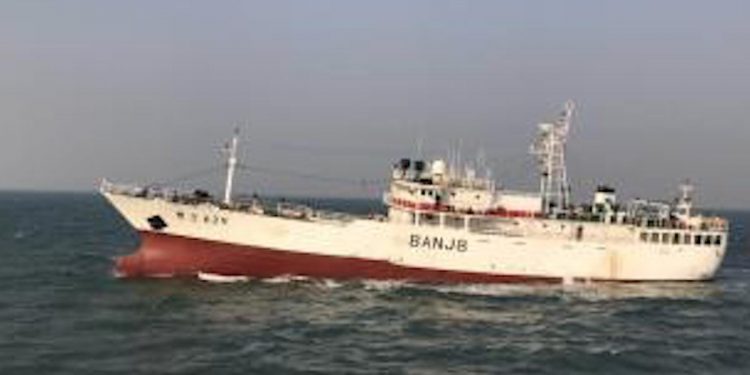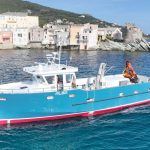Spain’s tuna sector says that Europe needs to take a close look at the criteria for its imports of seafood from Chinese fishing fleets as news about the degrading treatment of crews – including burials at sea – have sparked indignation among European operators.
The Spanish tuna fleet united under OPAGAC believes that the time has come for Europe to open a debate and reflect in depth on the criteria the EU has currently established for fish product imports from Chinese fleets, due to the latest information made public by NGOs and Asian media outlets, on the degrading treatment of their crews – including burials at sea of seamen who, allegedly, have fallen victim to COVID-19.
Reports on the situation on board Chinese fishing vessel Long Xing 629 have resulted in the intervention of the Indonesian government, as the seamen’s country of origin. As well as opening a criminal investigation into the holding company (Dalian Ocean Fishing), which operates another 32 tuna boats, the Indonesian government has requested explanations from the Chinese authorities that, in turn, have announced their co-operation with the investigation.
‘Europe cannot continue to turn a blind eye to these facts and import fish from these fleets, including those that are exempt from tariffs, for domestic consumption by EU citizens,’ said OPAGAC managing director Julio Morón.
According to OPAGAC, the reports of the way crews are treated on board Long Xing 629 have triggered a wave of indignation among the European fleets that operate under strict compliance of the different laws regulating this fishing activity worldwide, with special focus, as in the case of the Spanish fleet, on strengthening of crews’ social and employment rights.
OPAGAC has been denouncing the degrading treatment of Chinese ship crews for some time, including cases of slavery and child exploitation.
According to a study by the Spanish fleet, European tuna imports from Chinese and South-East Asian fleets, which are exempt from tariffs, have risen from 5% in 2012 to 53% in 2019. In total, Europe imported over 79,500 tonnes of tuna for domestic consumption from these fleets last year.
In OPAGAC’s view, the comparative disadvantage for community production, which complies with all legal requirements, is enormous.
According to this organisation, the application of Convention 188 of the International Labour Organisation (ILO), now in force, must be required of all imports to the community market, to guarantee that European consumers do not consume fish from boats with slaves on board or from those that do not respect the minimum social conditions or salaries set by the ILO.
OPAGAC states that the health crisis triggered by COVID-19 and its impact on the safety and well-being of crews has highlighted the situation of the sailors in the Chinese fleet, as they are often abandoned to their fate on board the vessels.
‘In contrast, European tuna fleets have made a great effort to overcome innumerable obstacles and relieve our crews safely, as is the case with the Spanish fleet that, on 9th May, managed to transfer 189 crewmen to the Seychelles and repatriate another 184,’ Julio Morón said.
‘Europe cannot be indifferent to the discrimination it practices, in this case against its own fleets with the Chinese, and also with a product that is consumed by almost all European citizens.’









